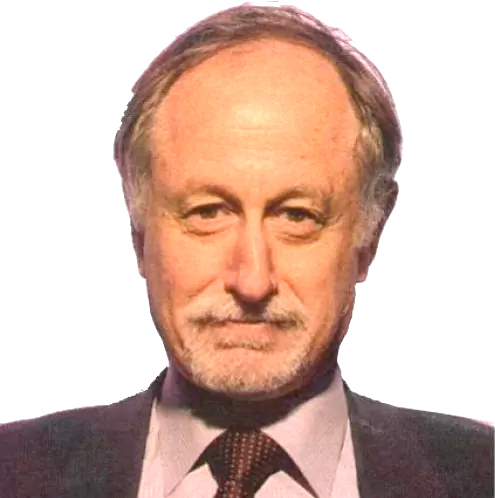Fair Observer’s Video Producer & Social Media Manager, Rohan Khattar Singh, talks with the team’s Fair Observer’s Chief Strategy Officer, Peter Isackson, and its Chief of Staff, Kaitlyn Diana. They grapple with one of the most charged mysteries in American political life: the so-called Epstein files. The conversation moves from US President Donald Trump’s contradictory promises, to intelligence world shadows, to Elon Musk’s growing role and finally to how Democrats might exploit the fallout. The speakers distinguish between what is known, what is alleged and what is pure speculation.
The mystery of the Epstein files
The phrase Epstein files itself is contested. Do they exist as a coherent dossier? Or are they simply a mass of raw material — documents, recordings and testimonies — collected over years? Trump has publicly insisted, “No, there are no Epstein files,” yet former Florida Attorney General Pam Bondi asserted in February, “They’re sitting on my desk.” This contradiction immediately underlines the deep uncertainty surrounding the subject.
Despite the ambiguity, the general assumption is that these files refer to an enormous cache of evidence seized by authorities. Reports claim the Federal Bureau of Investigation collected thousands, possibly tens of thousands, of videos and other documents from sex trafficker Jeffrey Epstein’s properties after his arrest and death in custody. Whether this has been systematically analyzed and compiled or still exists as unprocessed evidence remains unclear. What is certain, however, is that public pressure continues to mount for their disclosure.
The conversation also highlights Epstein collaborator Ghislaine Maxwell’s central role. American lawyer Alan Dershowitz once remarked that she “knows everything.” But even if she does, can she be compelled to speak honestly and comprehensively? Peter and Kaitlyn say this uncertainty makes the entire affair even more combustible.
Trump’s promises, broken and reversed
A major focus of the discussion is Trump’s shifting stance. While campaigning for the presidency in 2024, Trump promised repeatedly to release the Epstein files and expose the truth. But once in power, he reversed course, casting doubt on the files’ very existence.
Kaitlyn interprets this as a familiar Trump tactic. “He just lies to his followers,” she states bluntly. She recalls his infamous boast that he could shoot someone on Fifth Avenue without losing support, arguing that this cynical view of loyalty is now rebounding against him. Some of Trump’s base have grown disillusioned because of his inaction on Epstein. What once seemed like a weapon against Democrats has become a source of doubt.
Peter agrees that Trump lied, but nuances Kaitlyn’s position. While Trump assumed supporters would always fall in line, he is now facing unexpected defections. Figures like former strategist Steve Bannon, Turning Point USA nonprofit founder Charlie Kirk and former special government employee Elon Musk have distanced themselves. Peter broadens the perspective: “Everybody lies, but Trump is particularly egregious … He doesn’t try to cover his tracks.”
Another reason for Trump’s original push, Peter suggests, was his campaign against the so-called “deep state.” Epstein’s rumored intelligence ties made the case an ideal rhetorical weapon to dramatize the “swamp” Trump pledged to drain. But his personal ties to Epstein made that strategy self-defeating. His hope that those links would be ignored has proven false.
Epstein, intelligence and the deep state
The discussion turns toward Epstein’s puzzling rise and mysterious connections. How did a college dropout and former math teacher amass such influence and wealth? Alexander Acosta, who as US attorney oversaw Epstein’s controversial plea deal in 2008, allegedly told investigators that Epstein “belongs to intelligence.” This phrase, Peter notes, suggests higher powers ordered leniency.
Peter speculates that Epstein’s case represents a web of intelligence involvement designed to remain hidden. Reporter Clara Ward’s coverage, he recalls, cited testimony that Acosta explained his hands were tied; Epstein’s protection came from above his pay grade.
The conversation also considers Epstein’s ties through Ghislaine Maxwell to her father, Robert Maxwell, long rumored to have worked with Israel’s national intelligence agency, the Mossad. If Epstein was indeed an intelligence asset, it may have involved cooperation among the Mossad, the CIA and Britain’s MI6.
Peter stresses he isn’t asserting proof, but highlighting plausible storylines. For him, this intelligence angle is a vital part of the Epstein affair and potentially the most dangerous contradiction for Trump. He compares it to ongoing revelations about CIA involvement in past American traumas — the assassinations of US President John F. Kennedy, and civil rights leader Martin Luther King Jr. — arguing that the Epstein affair fits into a broader history of deep state secrecy.
MAGA cracks begin to show
The Epstein files debate, Peter and Kaitlyn agree, has fractured Trump’s MAGA coalition. Some supporters demand disclosure while others reflexively defend Trump’s retreat.
Kaitlyn remarks that many are realizing Trump is the figure the political left always warned he was. Yet his sexual scandals are not decisive for his base, who long ago proved willing to excuse them. Instead, she sees psychological contortions — cognitive dissonance and narrative rewrites — allowing defenders to rationalize his U-turn. Still, she remains uncertain how far loyalty can stretch this time.
Peter argues a “major change in the landscape” is underway. If Trump loses enough support, Republicans will face an identity crisis. He mentions rumors of Vice President JD Vance and other rising figures preparing to step into the vacuum, perhaps even trying to humiliate Trump in the process.
Elon Musk, Rasputin or pretender?
The conversation then turns to Musk, who once reportedly donated over $100 million to Trump’s cause but now openly breaks with him. On his platform X, Musk demands a release of the Epstein files.
Peter is unsurprised by the fallout, given Trump’s and Musk’s egos. He believes Musk is positioning himself as a political manipulator, though he doubts he can succeed. Kaitlyn, however, views Musk as a dangerous opportunist. “He’s like the modern-day Rasputin,” she says, arguing that he is attempting to seize Trump’s disillusioned followers and build his own cult of personality.
Can Musk credibly enter politics? Peter doubts Americans see him as ideologically serious. Kaitlyn, however, thinks his celebrity power and alignment with Trump-like populism could propel him into politics, given how unconventional candidates have succeeded before. She recalls controversy over whether Musk performed a Nazi salute on television, treating it as a hint at extremist sympathies.
Still, Peter insists Musk cannot replace Trump. He likens Musk’s prospects to those of US President Ronald Reagan, once dismissed as a cartoonish actor, but quickly adds that American politics is now so unpredictable that almost anything is possible. Kaitlyn concedes Musk would probably need to pursue the Republican nomination rather than a third-party bid, and even then, it would be a long-term play.
They also address the constitutional obstacle: Musk’s South African birth bars him from the presidency unless the US Constitution is amended. Kaitlyn acknowledges that Americans have cherry-picked constitutional clauses to suit elites before, but she doubts Trump himself would champion reform, given his anti-immigration stance.
Democrats smell blood
Turning to the Democratic Party, Peter and Kaitlyn outline a strategy of opportunism. Democrats, Peter says, have always obsessed over portraying Trump as an “outsized villain,” from the Access Hollywood tape leaked in 2016 — a 2005 recording of Trump telling television host Billy Bush about his history of sexual harassment — to his current Epstein entanglements. Now they sense an opening to use the scandal against him.
A crucial part of that strategy, Peter suggests, is their willingness to sacrifice US President Bill Clinton. During US President Joe Biden’s administration, exposing Clinton’s Epstein ties was too costly. But now, with Bill Clinton aged and former presidential nominee Hillary Clinton sidelined, Democrats may accept collateral damage if it means fatally wounding Trump. Kaitlyn agrees, describing a spiderweb effect that could entangle numerous elites, not just Clinton. In her view, Democrats are willing to “shoot themselves in the foot” if that is the price of defeating Trump.
What if the files are released?
Finally, the speakers consider what the release of the files might mean. Kaitlyn foresees a massive scandal, possibly involving politicians, tech billionaires, media moguls and especially Hollywood. The impact, she believes, would ripple far beyond government, damaging entertainment and culture itself.
Peter, meanwhile, stresses the deeper revelation: The exposure of a transpartisan elite “big club” where ideology is irrelevant and power, pleasure and secrecy rule. If this truth emerges, he warns, Americans’ understanding of their country could change permanently.
Above all, Peter insists the intelligence dimension is decisive. If these agencies fail to maintain secrecy, revelations could stretch beyond sexual scandal to matters of war and covert regime change. He predicts fierce resistance, with implicated actors colluding to bury the truth. Yet he also notes pressure from figures like Republican Congresswoman Anna Paulina Luna, who demands transparency on Epstein. The deep state’s secrets may eventually come under unprecedented scrutiny.
What lies ahead
The Epstein files, whether myth or reality, have already shaken American politics. For Kaitlyn, they reveal Trump’s pattern of manipulation and betrayal. For Peter, they expose intelligence-world shadows and elite complicity. Both agree that the issue is splitting the MAGA movement, tempting Musk into politics and giving Democrats a new weapon.
But the greatest unknown remains: Will the files ever be released? If they are, will they confirm suspicions of individual depravity or something even more profound: a system of elite power that transcends parties and nations?
[Lee Thompson-Kolar edited this piece.]
The views expressed in this article/video are the author’s own and do not necessarily reflect Fair Observer’s editorial policy.












































Comment